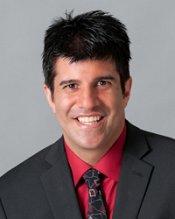The college-career phase: more important than in our generation
By Daryl CapuanoCollege Advice
My friend who lives in Fairfield County asked me for SAT help for his freshman daughter. I noted that most students in Shoreline, Connecticut start junior year. “Not around here”, he said. We laughed at the differences between where live, even though, relatively speaking it is a very small space on the map.
The college conversation with those live in suburbs of major cities is different than the college counseling conversations I have with those who live in suburban Connecticut. To the extent that Shoreline Connecticut types are more balanced – in a healthy way – they are far less driven about college than those in the affluent suburbs of major cities. That must sound crazy because I know there is still a great deal of college craziness among those in Guilford, Madison, Old Saybrook, Essex, Old Lyme, East Lyme, Waterford, Branford etc.
Nonetheless, those in the aforementioned areas have a far more singular drive: get my college into the highest ranked college possible. Prior to the Great Recession, this was likely an unhealthy obsession. Post Great Recession, there is a challenging reality to post-college employment. Not everyone gets jobs or at least career-building jobs.
My friend – who provides economic information to an investment entity – did not focus on getting his children into a top college for image sake. Instead, he cited some alarming data regarding the underemployment of those who attend colleges that are in what he called “the second tier”.
Parents in Southeastern Connecticut do not run into that many twentysomethings because most young adults live in or near cities. We do not readily see the vast number of unemployed or underemployed twentysomethings.
I pause to emphasize that I find nothing wrong with digging ditches or doing any type of honorable work. But my friend relayed that all of those that he has spoken with in such situations went to lower tiered colleges. He viewed college counseling and SAT prep and as “insurance policy” for his children so that they would have good jobs upon graduating from good colleges. Sadly, I agreed. The economic reality we live in has made us face this reality.

CEO, The Learning Consultants and Connecticut’s top private education consultant
full bio

